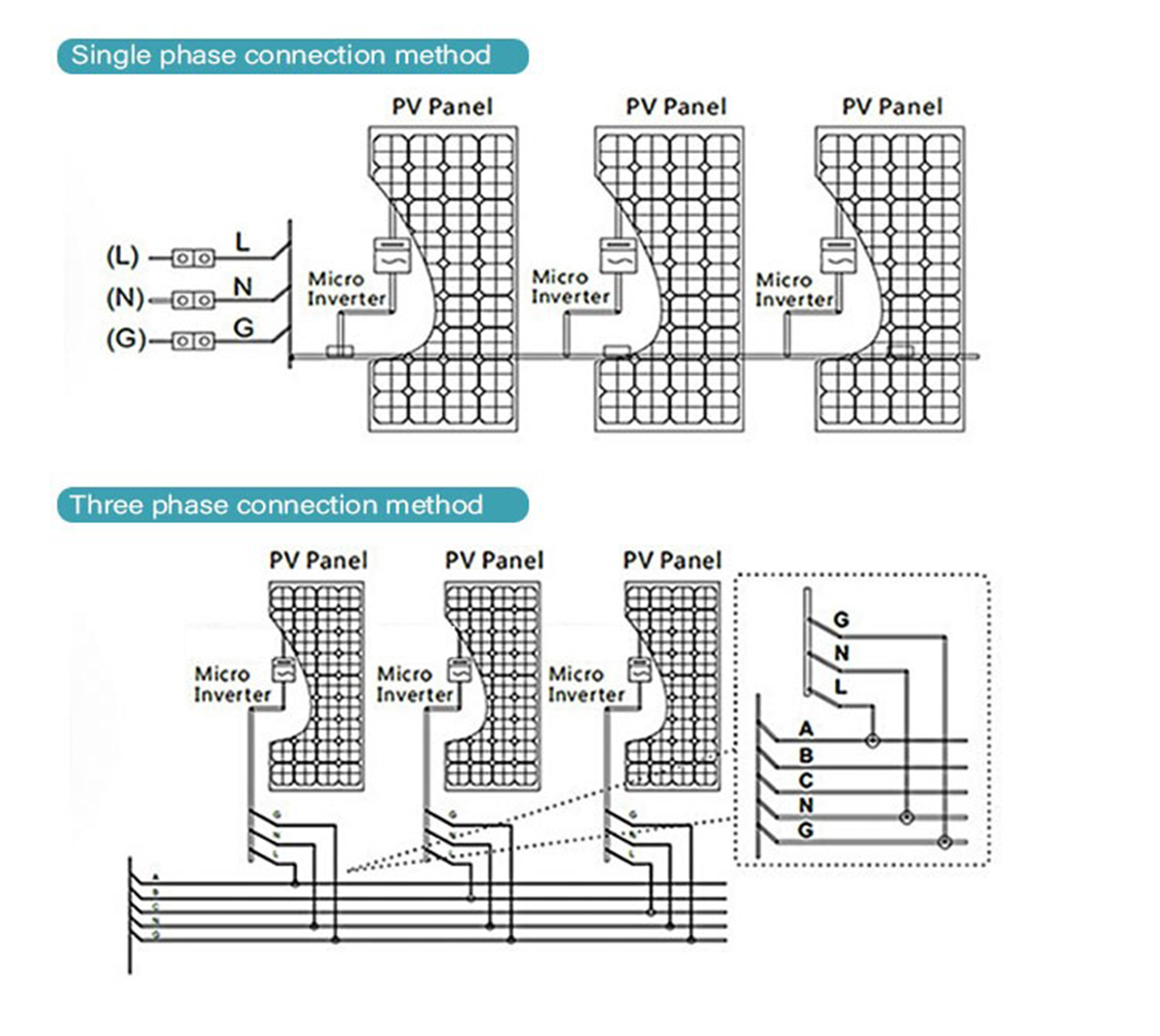In recent years, the demand for solar energy has been soaring, and for good reason. Solar power offers a clean and sustainable source of electricity, reducing our carbon footprint and reliance on non-renewable resources. However, harnessing the power of the sun requires more than just solar panels. One crucial component of any solar energy system is the inverter. In this article, we will take a closer look at how the inverter works, its different types, and the various features it offers, including micro inverters and waterproofing.
At its core, an inverter is an electrical device that converts direct current (DC) electricity generated by solar panels into alternating current (AC) electricity that can be used to power electrical appliances and feed excess energy back into the grid. This conversion is necessary because most household appliances and the electrical grid itself operate on AC power.
Conventional string inverters, commonly used in solar installations, connect all the solar panels in a series, converting the combined DC power produced into AC power. While they are cost-effective, these inverters have some limitations. For instance, if one panel under performs due to shading or dust, it affects the performance of the entire string, resulting in suboptimal energy output. Moreover, string inverters are prone to overheating, which can lead to system failures and reduced component lifespan.

To overcome these limitations, micro inverters have emerged as an innovative solution. Unlike string inverters, micro inverters are installed on each individual solar panel, converting DC power produced directly at the source into AC power. This improves the system’s performance as the energy output of each panel is optimized, regardless of the conditions of other panels. Additionally, micro inverters offer several advantages, such as better monitoring capabilities, enhanced safety, and increased flexibility in system expansion.
Another crucial consideration when choosing an inverter is its ability to withstand environmental factors, particularly water exposure. The waterproof feature in inverters ensures their longevity and performance even in wet conditions. By protecting internal components from moisture, waterproof inverters offer increased durability and minimize the risk of system failures.
Furthermore, it is essential to have adequate protection against overheating, as high temperatures can damage the inverter and reduce its efficiency. Overheating protection is a key feature that prevents the inverter from reaching critical temperatures. This can be achieved through proper ventilation, cooling fans, or advanced thermal management systems, ensuring optimal operation even in hot climates.
Selecting the right inverter for your solar system is crucial, as not all inverters are compatible with every type of installation. For example, if you have a limited roof space and want to maximize energy output, a balcony system matching inverter may be suitable for your needs. Balcony system matching inverters are specifically designed for apartment balcony or patio installations, where space is often limited. These compact inverters offer the same functionality as regular inverters but are adapted to fit the unique requirements of this type of setup.
Similarly, solar system matching inverters are designed to integrate seamlessly with specific solar panel brands, ensuring optimal performance and system compatibility. They are tailored to work harmoniously with the selected solar panels, making them a preferred choice for installers and homeowners seeking a comprehensive solar solution.
In conclusion, the inverter plays a vital role in any solar energy system. Whether it’s a conventional string inverter or an innovative micro inverter, choosing the right type of inverter is crucial to maximize energy output and ensure system longevity. Additionally, features such as waterproofing and overheating protection enhance the durability and performance of the inverter. By understanding how the inverter works and considering these factors, you can make an informed decision when it comes to selecting the best inverter for your specific needs. Embracing solar energy and harnessing the power of the sun has never been easier or more efficient with the advancements in inverter technology.
Post time: Sep-25-2023

